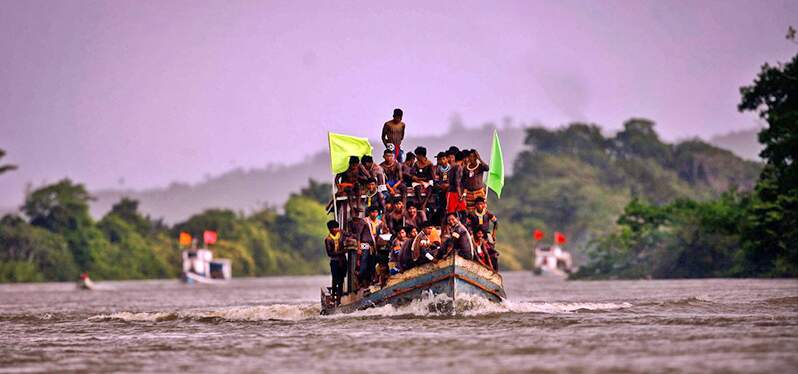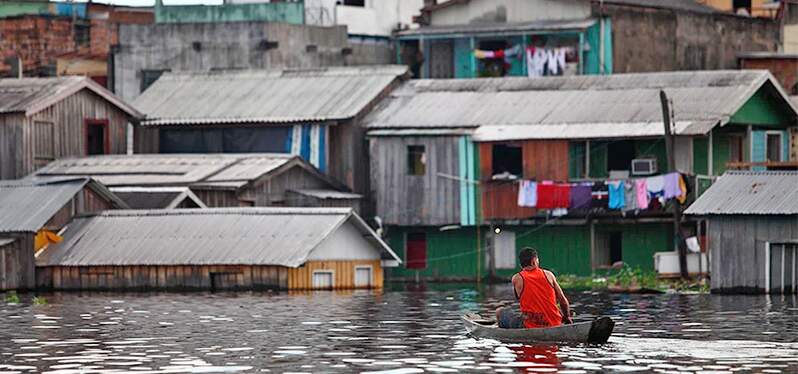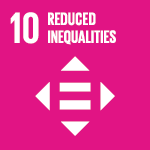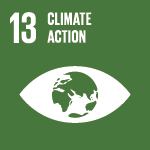Posted in: 11/17/2022
A just climate transition requires investors and companies to adopt safeguards , principles and guidelines of socio-environmental justice in the execution of economic projects in regions inhabited by low-income populations and areas relevant to the conservation of biodiversity and the balance of the climate system, including territories of indigenous and traditional peoples and occupied by small producers and agrarian reform settlers. This is the case in several areas of the Amazon where Synergia operates.
A large part of these principles and safeguards are contemplated in international commitments assumed by Brazil, such as the United Nations Conventions on Desertification, Biological Diversity and Climate Change, the Paris Agreement and the UN 2030 Agenda and its 17 Sustainable Development Goals (SDG).
First of all, it is imperative that activities to reduce greenhouse gas emissions in areas under pressure from deforestation respect the knowledge and rights of indigenous and traditional peoples, as advocated by the Cancún Safeguards to the Redd+ mechanism [1] , adopted at COP16, held in Mexico. As the document points out, undertakings also need to consider relevant international obligations, national laws and the United Nations Declaration on the Rights of Indigenous Peoples , approved in September 2007 by the UN General Assembly.

Among these rights is the one that ensures the full and effective participation of indigenous peoples, traditional communities and associations of small producers and agrarian reform settlers in negotiations for the approval of public and private projects in their territories, especially those related to infrastructure. In these situations, the right to free, prior and informed consultation of these communities must be guaranteed, as provided for in Convention 169 of the International Labor Organization (ILO) . As rightly noted in the Letter of Alter on the procedure of Convention 169, published last September 5 (Amazon Day) by the Sustainable Amazon Forum, “it is necessary to create and implement mechanisms to ensure that the consultation protocols already developed are implemented”.
Another important theme of the just climate transition is the fair and equitable sharing of benefits arising from access to genetic heritage or traditional knowledge associated with indigenous and traditional communities, as established by the Biodiversity Law (Federal Law No. in Brazilian legislation the guidelines of the Convention on Biological Diversity (CBD) , adopted at Rio-92.
Finally, there are a series of actions, guidelines and safeguards related to the concept of “ social license to operate ” in territories populated by indigenous, traditional communities and those made up of small producers and agrarian reform settlers. Basically, this expression refers to the need for approval by the community of the development to be installed in its territory, even if the company responsible for the project has already obtained the environmental license for its work. The “social license to operate” is not provided for in Brazilian legislation, but it has been gaining attentionof companies, since projects with a high level of socio-environmental safety and community acceptance tend to reduce financial, legal and reputational risks for investors.

Such security can also be favored by strengthening the prevention pillar in prevention, mitigation, repair and compensation actions for potentially adverse socio- environmental impacts of economic activities installed or to be installed in territories of indigenous and traditional peoples that inhabit areas of interest for conservation. and the climate system. The social and financial costs of the projects can be significantly reduced with the adoption of preventive measures, such as the structuring of an education and health network and the training of local labor suitable for the activities of the future enterprise, reducing the demand for workers from distant regions.
In partnership with Climatempo, the Ethos Institute launched at COP27 the Business Action Protocol on Climate Extremes and Socio-environmental Justice , formulated from discussions in its working groups on the environment and human rights, which include the participation of Synergia. It is a strategic tool for articulating the human rights and environment agendas to encourage companies to mainstream “themes and approaches, in addition to investing in prevention, mitigation, reparation and accountability practices, contributing to a fairer society, sustainable and respectful”.
The protocol points out that “companies with good levels of strategic integration [between the human rights and environment agendas] will be able to offer greater transparency to investors, both regarding the risks and opportunities in their sector, as well as offering better ways to assess the commitment business and the perpetuity of responsible actions”.
The document will be very useful for companies interested in advancing the agendas of human rights and socio-environmental and climate justice , two topics that still tend to cause reputational embarrassment and cause insecurity among investors.
Text prepared by Maria Albuquerque, founder and CEO of Synergia Socioambiental, and José Alberto Gonçalves Pereira, sustainability consultant
[1] Redd+ derives from the acronym of the Redd mechanism (Reducing Emissions from Deforestation and Forest Degradation). The positive sign adds to the initial scope of Redd the role of conserving and increasing forest carbon stocks and the sustainable management of forests. The Warsaw Framework for Redd+, adopted at COP19 in 2013, provides financial incentives for countries that increase their forest carbon stocks through the mechanism.


Sign up and receive our news.